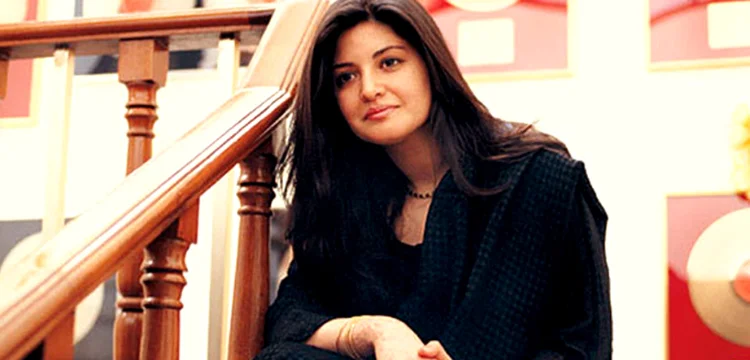Nazia Hasan revolutionised how we South Asians disco: Zeenat Aman
Share

Bollywood icon Zeenat Aman recently marked the 44th anniversary of the film *Qurbani* with a heartfelt Instagram post, featuring the music video of “Aap Jaisa Koi” from the 1980 blockbuster. In her post, she reminisced about a serendipitous encounter that intertwined her destiny with the late Pakistani pop sensation Nazia Hassan.
Aman recounted the chance meeting with Nazia and her brother Zoheb Hassan during a fatigued evening in London. Despite her exhaustion after a demanding day of shooting, Aman chose to engage with the polite and persistent Pakistani family waiting in her hotel lobby.
“There was a family of three waiting for me in the lobby of my London hotel, but I was not keen to make small talk with fans. I had just wrapped a day of shoot, and all I wanted was silence, a hot shower, and my bed,” Aman recalled. “Yet my convent school education would not allow me to be rude. So, I smiled sweetly and took a seat with my thoughts wandering to the luxurious suite that awaited me just a few floors above.”
The family, consisting of the elegant Muniza and her two teenage children, Nazia and Zoheb, soon captivated Aman with their charm and cultured demeanor. Despite her initial reluctance, Aman invited them to join her in her suite, where she learned about the siblings’ musical pursuits and enjoyed a brief demo of Nazia’s singing talent.
This connection deepened when Aman introduced Nazia’s talent to the esteemed actor-director Feroz Khan during the production of *Qurbani*. “Muniza and I remained in touch, and I subsequently introduced her to Feroz Khan with whom I was starting work on an ambitious project. You can picture the rest…” Aman wrote. Khan, immediately captivated by Nazia’s voice, enlisted her to record the iconic song “Aap Jaisa Koi”, produced under the guidance of music maestro Biddu. The song became a monumental success, defining an era of disco music across South Asia.
Reflecting on *Qurbani*’s legacy and Nazia’s pivotal role in it, Aman expressed her profound admiration for the young prodigy, acknowledging the lasting impact of her brief yet significant career on the music scene. “Yesterday marked 44 years of *Qurbani*. A film that captivated the South Asian audience, and whose music still plays on dance floors. *Qurbani* had a star-studded cast – Vinod, Feroz, Amjad, Amrish, and myself – but to me, there is only one breakthrough performance in the film, and that’s Nazia’s,” she remarked, highlighting Nazia’s cultural influence on both Indian and Pakistani music. “It may be my face and figure that comes to mind when the familiar tune of ‘Aap Jaisa Koi’ begins to play, but the song belongs entirely to that young Pakistani girl who revolutionized how we South Asians disco.”
Aman concluded her post with fond memories of playing an overprotective sister role in Nazia’s life. “I always felt protective of Nazia, and during film events and promotions I kept a close eye on her, much to the chagrin of her admirers and the delight of her mother.”
Nazia’s untimely demise in 2000 left a void in the hearts of her fans and admirers, including Aman, who remembered her as someone who “died too young” and a “true shooting star who blazed hot, bright and fast.” Despite her short time in the limelight, Nazia’s legacy endures through her timeless music, continuing to resonate with audiences who dance to the beats of “Aap Jaisa Koi”, “Boom Boom”, “Disco Deewane”, and many other hits.
Nazia Hassan’s influence continues to resonate in the global pop industry. Recently, American pop star Sabrina Carpenter’s new track “Please Please Please” garnered attention from keen-eared Pakistani listeners who noticed a striking similarity to the beloved 1980s classic “Disco Deewane”. The discussion began when influencer-model Anzela Abbasi shared an Instagram reel with a brief side-by-side comparison of the two songs, sparking a lively debate in the comments. Although Carpenter’s song appears to echo Nazia’s hit, it remains unclear whether this resemblance is coincidental or if it is intended as a homage to the legendary pop icon.








